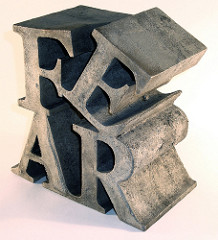I'm often asked a question that goes something like this, "What is a Debt Management Company?" or "What can a Debt Management Company do for me?" So, let me briefly tell you...
Recently, I had to testify in a trial involving one of our past clients. And, just like I'd seen on TV or at the movies, I was sworn in, sat in the witness box and the attorneys for both the prosecution and defense asked me a few questions.
The first attorney started off by asking, "Mr. Fontaine, what is a Debt Management Company?"
As co-founder and owner of Debt Relief NW, LLC, I've been asked that question hundreds of times.
I had been told to keep my answers brief and to the point if asked to explain, etc.
So I replied...
"Debt Relief NW helps people with severe debt issues find the best solution to deal with their debt."
Short and to the point....yes. But, there's a lot more to it!
What people really want to know is, "What can a Debt Management Company really do for me?"

First, it is very important that you only deal with a reputable debt management company that is registered in their state.
As with any profession or business, there are always a few "rotten apples in the barrel".
We have had many clients come to us over the last 15 years or so after they had been taken advantage of by crooked debt management/settlement companies!
Here in Oregon, each debt management company is required to be registered and comply with the statutes governing such companies.
They have some very good insight into looking for a reputable debt management company that you should check out at Debt Management/Managing Your Debt.
In the article, they advise you to make sure the company you are considering is in fact, registered. To check, click here.
OK, so now that you've done a little homework and made sure that the company your thinking about enrolling with is legit, again, let's see what a debt management company can (and cannot) do for you:
Those who need help with having accumulated too much debt (mainly addressing unsecured debt in this article) have done so because of one or more events that were or are beyond their control, such as:
- Unemployment
- Divorce or loss of spouse or partner
- Serious illness or disability
- Too little income after retirement!
When this happens, people will use credit cards to help with the intention of "paying them off" when things get better.
But, sometimes, those balances and the corresponding minimum required payments are just too much to handle....NOW WHAT!
We do not believe that "One size fits all" when it comes to dealing with too much debt!
Even though every situation may seem similar, in most cases, there are always several circumstances that have to be taken into consideration BEFORE we can recommend the right solution.
When faces with so much unsecured debt that you cannot (or are starting to fall behind) with the minimum payments required, there are only a few, legitimate options:
- Credit Counseling Program
- Debt Settlement Program
- Bankruptcy
Again, the first step into finding the proper solution to your particular situation is to take the time to find out exactly where you stand in regards to your income/outgo....ie. a monthly household budget!
When someone contacts us for answers, we walk them through a basic budget. 9 times out of 10, they will say something like...
" I had no idea I had this much debt and/or had this little money left over!"
Once we/they can see exactly where they are, then we can start to find the best solution.
Credit Counseling (or today called Debt Management)
If you have been making the minimum required payments on your credit cards and other unsecured accounts, but the balances are barely coming down, then it may be time for you to enroll in a credit (or debt management) counseling program.
These accounts have not been turned over to a debt collection company....yet.
If you qualify (there are several hoops to jump through), this type of program can help.
The Debt Management Company will contact each creditor and arranged a plan to get your accounts paid off, usually in about 48 months or so.
Most of the major creditors will usually agree to:
- Lower the interest rate
- Forgive or eliminate late fees and other charges
You will make ONE PAYMENT to the Debt Management Company and it will be divided and paid out to each creditor per the agreement.
The problem with such plans is that sometimes the total monthly payment required may be the same or in some cases, a little more than the total of the current minimum payments!
If you are having trouble making the minimum payments now, most likely you will not be a candidate for a Credit Counseling/Debt Management Program.
NOW WHAT?
A Debt Settlement Program may be the best solution.
Most prospects for a Debt Settlement Program have missed or stop making payments altogether to their creditors.
Their accounts have been turned over to a Debt Collector (or are about to be) and you have been getting calls and nasty letters.
If an original creditor feels like they will not be able to get you to keep up/catch up with the payments due on your account, they may charge that account off as a loss and sell or transfer that account to a debt collector.
Again, depending on your circumstances and particular situation, you may be a candidate for a SETTLEMENT on your account.
- You will be making a monthly payment into an FDIC Bank account that will be used to negotiate settlements in the future.
- This payment will be much less than the total minimum required payments due now.
- Your payment will fit into your particular budget.
The debt collection company (or in some case the original creditor) may be willing to take less than the full amount to "settle" this debt. This could be 50% or less, again, depending on circumstances.
Here's an idea of what an actual settlement agreement looks like:
Once the account has been settled, it will be reported to the major credit reporting agencies as:
- "settled as agreed", or
- "settled for less than the balance", or
- "settled in full"
Either way, your account will now show that you did something about it and now it has a $0 balance!
As each of your accounts are settled, your credit score will start to improve/increase.
But, what is the only option if you simply have too little or nothing to contribute towards either program?
Bankruptcy
Bankruptcy, in my opinion, should be the last solution after all other solutions are examined and/or tried.
When I am negotiating with a debt collector for one of my clients, I will have to remind them that we are attempting to negotiate settlements rather that having our client seek BANKRUPTCY PROTECTION.
That is what the bankruptcy laws were intended to do...protect a person's property from absolute ruin and detestation!
We do everything we can to help a client with finding the best solution/program to help with their debt problems, but in some cases, bankruptcy is the best solution.
Make sure you interview at least a couple of bankruptcy attorneys to make sure you feel comfortable with them and their experience.
FINALLY... What can a Debt Management Company do for you?
- Help eliminate the fear and stress that comes with having too much debt!
- Help find the best solution to fit your particular situation.
- Help get you back to being DEBT FREE once again!







 First, some VERY IMPORTANT POINTS...
First, some VERY IMPORTANT POINTS...





